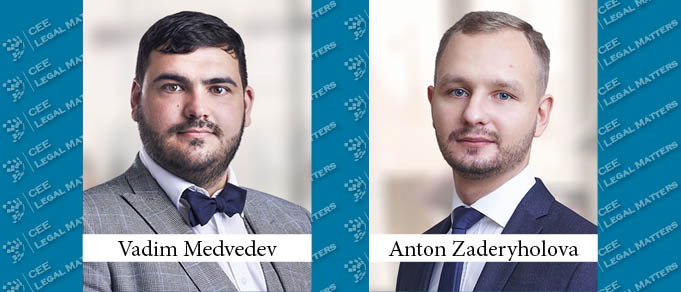In 2021, the President of Ukraine had signed two laws establishing a special legal and tax regime for the digital economy called Diia City. It has become effective from January 1, 2022, after the law shaping the taxation regime of Diia City has become effective.
The idea of Diia City is that any Ukrainian legal entity may become a participant in this regulatory regime if certain criteria are met, in particular: (1) the entity is engaged in certain digital-related activities (e.g., software development, video game production, educational activities in the sphere of IT, etc.); (2) the average amount of the monthly salary for employees and gig-contractors (will be described further) is not less than the EUR 1,200 equivalent; (3) the legal entity’s average amount of employees and gig-contractors is no less than nine; (4) the amount of the entity’s qualified income is not less than 90%, with qualified income defined as income from activities described in point (1) above; (5) the entity does not face one of the restrictions on the approved list. For example, the list contains the following restrictions: (i) the entity is not a foreign one; (ii) the entity has not violated UBO disclosure legislation; (iii) the entity is not recognized as bankrupt, etc.
Residents should submit a compliance report confirming compliance with the criteria above. If the entity cannot comply with the requirements, it will lose the status of a Diia City resident.
Residents of Diia City may engage their workforce as employees and as gig contractors. Gig contracts provide for more flexibility of mutual arrangement between entity and individual.
Diia City was introduced as an alternative to the popular (in Ukraine) structure for engaging software developers, the so-called co-working structure. Within this structure, software developers are engaged as independent private entrepreneurs, paying a 3% or 5% single tax on their income and, usually, united under the umbrella of one co-working office. Such co-working structures have some tax and employment risks. One of the major reasons for introducing Diia City was the mitigation of these risks while keeping a beneficial tax regime.
Residents of Diia City may choose the following taxation regimes: (1) the general corporate income tax at 18%, applied to the entity’s profits; (2) a special corporate income tax at 9%, applied to distributed profit and other payments.
Apart from dividends, the special corporate income tax also covers other payments that may be abusive and aimed at artificial profit shifting. For example, some cases of share buy-backs in an amount exceeding the initial contribution or purchase price are taxable; interest payments to a related resident entity or non-resident, in case of thin capitalization, are taxable; some cases of free-of-charge supply of goods and services are taxable, etc.
Diia City also provides for a beneficial salary taxation regime. The salary of Diia City residents’ employees and gig-contractors is taxed at a decreased 5% personal income tax rate if the annual income does not exceed EUR 240,000. The income on top of EUR 240,000 is taxed at a standard 18% personal income tax rate. The salary of Diia City residents’ employees and gig-contractors is, in addition, taxed at a standard 1.5% military duty rate and is subject to the minimum unified social contribution of approximately EUR 37 per month.
Dividends paid by those Diia City residents who have opted for a special corporate income tax regime are exempt from Ukrainian taxation if the dividends are not distributed for two years in a row.
Diia City is a game-changer for the Ukrainian IT industry. Some big players on the Ukrainian market have publicly supported Diia City and are likely to become its residents.
It is still unclear how the co-working structure will coexist with Diia City. Therefore, some companies may be skeptical about the regime. The argument here is the Ukrainian IT industry was already growing very fast, and it may be dangerous to alter that which is already working. Extra attention from the government may also lead to some unexpected black swans.
Diia City does not apply to non-profit organizations. Thus, it is questionable how IT-focused non-profit universities may benefit from the regime and salary taxation incentives. However, such an issue may be fixed in the future.
By Vadim Medvedev, Partner and Head of Tax, and Anton Zaderyholova, Senior Associate, Avellum
This article was written before the advent of the war in Ukraine and was originally published in Issue 9.2 of the CEE Legal Matters Magazine on March 1, 2022. More current articles on developments in Ukraine can be found in our #StandWithUkraine section. If you would like to receive a hard copy of the magazine, you can subscribe here.


